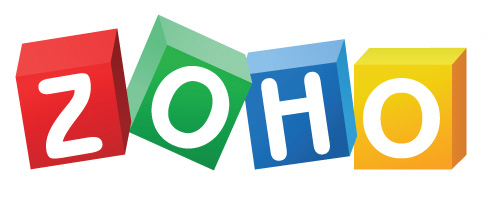Sridhar Vembu: How this man from India created a 500 million dollar company that competes with Google?
Sridhar Vembu is living the dream of every entrepreneur. He is constantly chased by VCs and he is rejecting them! The company, who are the makers of online Zoho Office Suite and other similar products, has reached to an extent where Mac Benioff, the CEO of Salesforce.com, is desperate to buy the company, due to nervousness of getting out-beaten. But Sridhar rejected his offer as well.
Beginning of an era

Sridhar Vembu belongs to a modest middle class family, situated in Chennai, India. He completed his schooling from a government aided school in Tamilnadu. He then went to IIT-Madras and obtained his undergraduate degree. At IIT, he met Tony Thomas, who was three years senior to him, and who is the co-founder of AdventNet, which later became Zoho Corporation. Later on, Sridhar moved to Princeton University, in 1989, and completed his Electrical Engineering.
In 1994, he completed his Ph.D. and joined Qualcomm, where he worked for two years. When his brother suggested the plan to start a company, he quit his job at Qualcomm and rushed back to India. The two brothers along with Tony Thomas founded Vembu Software.
All the business was bootstrapped, with the investment made only by family and friends. To this day, when the Zoho had become a multi-million dollar company, they still work without any external funding, rejecting the continuous offers they keep on receiving.
“On those fundamental principles, we are not budging,” says Raju Vegesna, 37, Zoho’s chief evangelist. “We keep getting calls from venture capitalists but Sridhar (CEO) has even blogged asking them not to bug us.”
The business started well and they sold their products to a lot of companies in Silicon Valley and in Japan too. By the end of the year 2000, they’d grown to 115 engineers in India, 7 employees in US, with a business of $10 Million USD.
The setback and the comeback
In the year 2001, during the Dot Com Bubble burst, the networking faced a huge setback. The company customers list reduced from 150 customers down to just three customers. This resulted into a lot of resources and engineers being idle.
What seemed like a setback was blessing in disguise. They took two mandatory decisions.
They took the management networking software which they sold as Order Equipment Manufacturer (OEM) and converted it into an Enterprise model. This gave birth to ManageEngine.
On the other hand they had an on demand effort. They invested some man power and resources into that and this gave rise to Zoho!
The company changed its name to AdventNet in 2005, and later changed it to Zoho Corporation in 2009. The business started growing over the internet for the rented software rather than selling the licensed copy for expensive software. They started Zoho.com, offering internet based software for work. They also started three more divisions, Zoho.com, WebNMS and Manage Engine. The graph of company’s growth headed upwards rapidly. Sridhar and team so loved the name Zoho that the domain name was purchased for $5000 from a us based startup that was in liquidation process.
By the end of the year 2012, the total revenue of the Zoho Corporation was near to $120 million USD and that of 2006 was $500 million USD, with 18 million users worldwide!

Company culture and competition
Zoho has its own way of recruiting. They had set up their own Zoho University where they hire college dropouts and underprivileged students from low income backgrounds and train them to code and develop software products in India.
“I hardly spoke any English at the time, but I was really good at math… maybe that’s why they hired me,” says Babu, who was one of six young people recruited into what would become the first batch of trainees at Zoho University. He is now 28 and is product manager at Chennai based Zoho corporation private limited. Unlike other big shots in software industry, Vembu believes in smartness of individuals and hence recruits in a very innovative fashion. On one hand, where all the toppers are the point of attractions for regular recruiters, Vembu, who is an alumni of an elite institute, invests in training dropouts.
Today Zoho has more than 30 products that compete with big companies like Google & Salesforce. Vembu believe that he makes his prime minister and country proud in their Make In India campaign. ‘I am a great fan of Modi,’ says Vembu.
Although their customer base is spread worldwide, their major man power source is in India, that too, otherwise neglected youth. Thus, the true objective of make in India is fulfilled by Vembu and company.

Yogesh Pandey is the author of the novel, The Pragmatic (2016). He is currently pursuing his masters from Fergusson College, Pune.
He also runs a YouTube channel named Hard Reads, which is all about books and reading. He is an avid reader and is doing research in the field of Astrophysics.